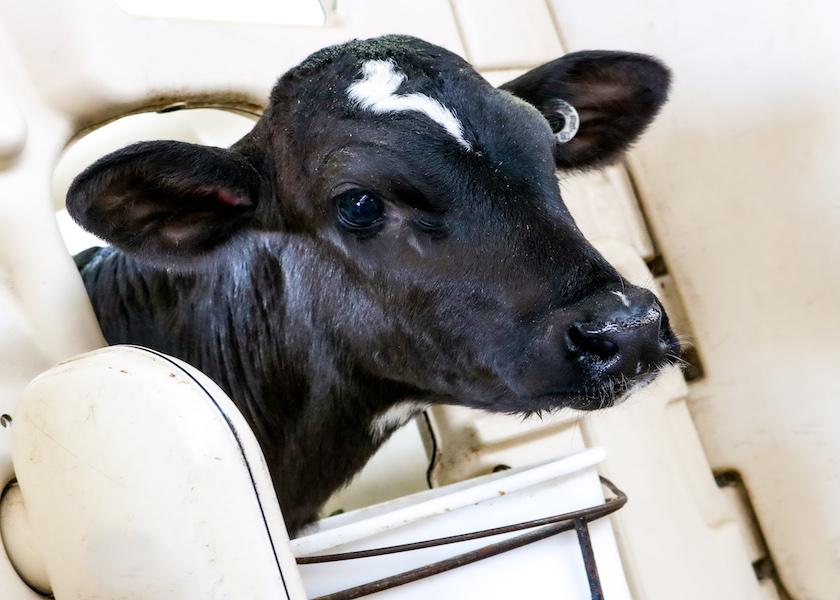Hints for Starting Calves on Starter

Aggressively consuming dry feeds is the gateway to healthy weaning for young dairy calves. But many calves are reluctant to begin consuming starter grain, especially if they are on a nutrient-heavy liquid ration. Experts offer advice on how to jump-start rumen development and promote a smooth weaning transition by encouraging calves to eat starter.
Calves are born with the natural inclination to nurse, but not to consume dry feed.
The sooner calves eat enough dry feed to sustain themselves, the better equipped they are to bridge the nutritional gap between the fixed liquid ration and a weaned diet of solely dry feeds – without stalled growth or health setbacks.
But getting calves to aggressively eat dry feeds can be challenging, especially when they are fed large quantities of liquid nutrients via the milk ration. Michigan State University Dairy Extension educator Faith Cullens said calves should be consuming enough starter to smoothly continue a healthy average daily gain (ADG) as they transition through weaning.
“It is very important that the calf can continue on a high growth pattern – and not diminish the excellent weight gains from an accelerated milk-feeding program – after they are weaned,” said Cullens. She suggested calves weaned at 6 weeks of age or less should be consuming 2.0 to 3.0 pounds of starter grain per head per day for three consecutive days before weaning. Larger calves that are weaned later or have been on an intensive milk-feeding program need to be eating 4.0 to 5.0 pounds/head/day.
Cullens offers advice for encouraging young calves to consume starter grain, as does Nick Stagg, Calf and Heifer Specialist for Purina Animal Nutrition, who discusses the topic in this video. Their suggestions for success include:
1. Starting early – Begin offering starter grain as early as day 3 of life, and definitely within their first week.
2. Small servings – In the beginning, make just a handful of fresh grain available, and change it daily. Refusals can be fed to older animals; freshness for young calves is critical. Saliva contamination, flies, spoilage and mold growth all can discourage starter intake.
3. Shallow vessels – Calves don’t like to put their heads down into unfamiliar buckets or troughs, so it is important to serve starter grain in a shallow bowl or basin, where they can see, smell and explore it. You may be able to find bowls that rest right inside the more-permanent pails you will use for grain when calves are slightly older.
4. Hand-feeding – Try putting a small amount of grain directly into the calf’s mouth right after they have nursed a nipple, when they are most curious.
5. Fresh water -- Begin offering clean, fresh water as soon as starter grain is offered, and change it daily as well. A large body of research has shown that not only does water intake aid in the digestion of starter grain and rumen development, but it encourages greater grain consumption.
6. Separate structures – Place a divider between starter grain and water – or locate pails at a distance from one another -- to preserve freshness and avoid cross-contamination of both.
7. Steady supply – Don’t let calves run out of starter grain. As their intake increases, offer more at each feeding so they consistently have access to it free-choice.
For more on calf nutrition, read:
- Colostrum May Have Yet Another Virtue: Scours Treatment
- Dairy Calves May Join the “Phase Feeding” Club Soon
- Beware of Copper Toxicity in Calves







